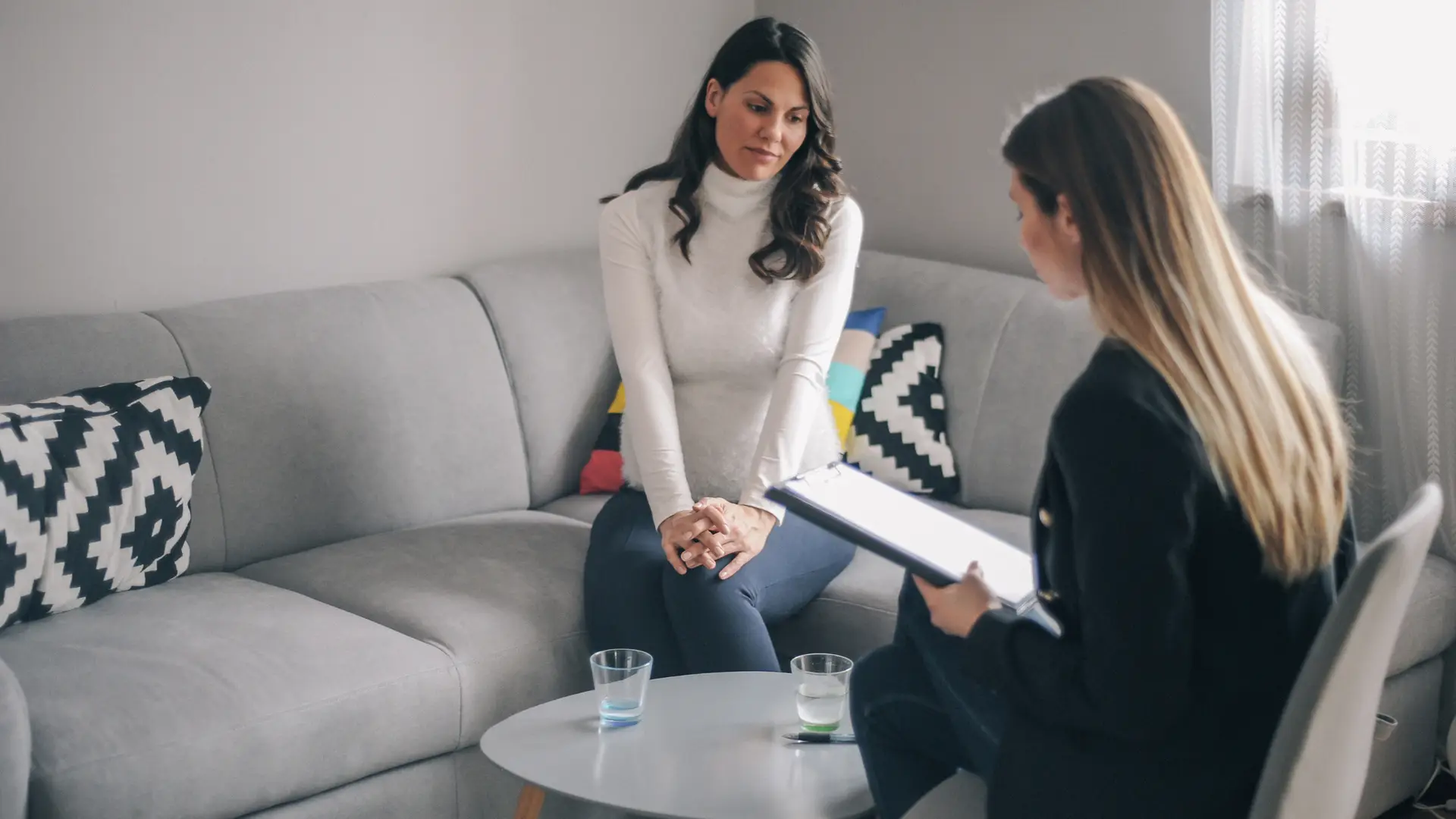Substance Use Counseling can be a crucial step in healing, because substance use can have a profound impact on every part of a person’s life, physically, emotionally, and socially. Whether it’s alcohol, prescription medications, or illicit drugs, the struggle with addiction often stems from deeper psychological pain, trauma, or untreated mental health conditions. Recovery, therefore, is not just about stopping the use of a substance. It’s about learning how to live differently, how to manage life’s stressors, and how to feel okay without leaning on substances as a crutch. Effective recovery isn’t a short-term fix. It depends on long-term coping strategies and relapse prevention.
The key to sustainable recovery is not just abstinence but learning how to handle life’s difficulties in healthier ways. Long-term coping skills and relapse prevention tools form the backbone of successful recovery. These aren’t things people are born with; they are learned and practiced over time, often with the help of professional counseling. That’s where substance use counseling plays such a critical role.
This blog will explore how substance use counseling helps individuals build these vital tools. We’ll look at the counseling approaches, techniques, and strategies that support long-term sobriety. You’ll learn how these services not only address substance use but also strengthen emotional resilience, improve problem-solving, and foster personal growth. And we’ll show how Bleuler Psychotherapy Center in Queens offers compassionate, expert care designed specifically to help clients build lasting coping mechanisms and prevent relapse through flexible outpatient services.
Understanding Substance Use Counseling
Substance use counseling is a therapeutic approach designed to help individuals confront, understand, and overcome the behaviors and underlying emotions connected to their substance use. It’s not simply about detox or symptom management. Instead, it involves a comprehensive look at how someone’s thoughts, emotions, and life circumstances contribute to their relationship with substances.
At Bleuler Psychotherapy Center, our licensed outpatient services are built around the therapeutic relationship between the client and counselor. This partnership forms the foundation of recovery. Through one-on-one sessions, group therapy, and optional family counseling, clients are given the tools to face their past, understand their behaviors, and develop healthier ways of coping with stress, pain, and daily challenges.
Importantly, substance use counseling doesn’t end at abstinence. Its true value lies in teaching clients how to stay sober in the long term. This is where coping skills and relapse prevention strategies come into play. These tools help individuals manage the realities of life without returning to substances, and they are a central focus of the counseling process at Bleuler.
The Role of Coping Skills in Substance Use Recovery
Coping skills are the behaviors and thought patterns we rely on to manage emotional distress, solve problems, and adapt to life’s challenges. For individuals in recovery, coping skills are vital. Without healthy ways to deal with stress, anger, loneliness, or fear, the temptation to return to substance use can be overwhelming.
Substance use counseling helps clients explore and adopt healthy coping strategies tailored to their unique needs. This might include emotional regulation techniques, such as identifying emotional triggers, practicing mindfulness, or learning to pause before reacting. Clients also work on relaxation exercises like deep breathing or progressive muscle relaxation, which help reduce physical and mental tension in high-stress situations.
Counselors help clients identify their specific triggers, whether those are emotional (like rejection), environmental (like parties or bars), or relational (like toxic dynamics). From there, clients develop a personalized set of responses and tools that allow them to face those triggers without resorting to substance use.
Problem-solving skills are also emphasized in counseling. When individuals learn to approach difficult situations calmly, assess their options, and take thoughtful action, they gain confidence. They stop seeing stress as a threat and start seeing it as something they can handle. This shift is powerful in helping people stay grounded and sober.
The Role of Relapse Prevention in Substance Use Recovery
Relapse prevention is a critical aspect of substance use counseling. While many people equate relapse with failure, we view it differently. At Bleuler, we understand that relapse can be a natural part of the recovery process. Our goal is to minimize its likelihood by equipping clients with the awareness, skills, and strategies they need to stay on course.
Relapse prevention begins with understanding common triggers. These can range from everyday stress and conflict to deeper issues like grief or unresolved trauma. Clients learn to recognize these triggers early, identify how they manifest in thoughts, feelings, and behaviors, and take action before those feelings escalate into a relapse.
Counseling also teaches clients to recognize warning signs of relapse, changes in sleep, isolation, irritability, or cravings, and encourages them to act early. Counselors work collaboratively to create a relapse prevention plan that includes support systems, emergency strategies, and self-care routines that strengthen resilience.
We also focus on building long-term resilience. That means helping clients learn how to handle setbacks, regulate emotions, and adapt to unexpected changes in life. With strong relapse prevention strategies in place, clients gain a sense of control and confidence that supports them long after counseling sessions end.
The Counseling Approaches That Build Coping Skills and Prevent Relapse
Substance use counseling draws on several well-established therapeutic approaches, each with its own set of strengths. At Bleuler, we incorporate these into customized, evidence-based treatment plans to meet each client’s needs.
Cognitive Behavioral Therapy (CBT) is one of the most effective methods for building coping skills. CBT helps clients identify the negative thought patterns and beliefs that contribute to substance use. Once those thoughts are made visible, clients can begin to challenge and reframe them. Over time, CBT empowers individuals to replace self-defeating behaviors with healthier, more constructive ones.
Motivational Interviewing (MI) is especially useful for individuals who feel unsure about recovery. Rather than pressuring clients to change, MI uses open-ended questions, reflective listening, and empathy to help individuals explore their reasons for wanting to get better. This approach enhances motivation and builds the internal drive needed for long-term sobriety.
12-Step and Group Therapy Models offer peer-based support that is invaluable during recovery. Group therapy sessions allow clients to share experiences, learn from others, and develop a sense of community. Peer accountability, mutual encouragement, and shared wisdom make group settings a powerful tool for coping and relapse prevention.
Mindfulness and Stress Management Techniques are also frequently integrated into counseling sessions. Clients learn to be present in the moment, observe their thoughts without judgment, and use breathing or grounding techniques to manage anxiety or cravings. These practices reduce reactivity and help prevent impulsive decisions that could lead to relapse.
Lastly, Relapse Prevention Education is built into every step of the counseling process. We don’t just talk about staying sober; we teach how to stay sober through real-world tools, role-plays, scenario planning, and individualized relapse prevention plans.
How Counseling Helps Strengthen Emotional Regulation and Resilience?
A core part of substance use counseling is helping individuals learn to manage their emotions in healthier ways. Many people who struggle with addiction have difficulty sitting with feelings like anger, sadness, fear, or shame. Substances may have become a coping mechanism to numb those feelings. In counseling, we work to replace those habits with emotional regulation skills.
Strengthen Your Relationship Today
Take the first step toward a healthier, more fulfilling partnership. Speak with one of our specialized couples therapists in Queens.
This includes learning how to label emotions accurately, express them constructively, and reduce emotional intensity when it becomes overwhelming. Clients practice strategies such as self-soothing, reframing negative thoughts, and setting boundaries in emotionally charged situations. The goal is not to suppress emotions but to navigate them with clarity and calm.
Counseling also supports the rebuilding of self-esteem and confidence. Addiction often takes a toll on self-worth. Through positive reinforcement, goal setting, and a strengths-based approach, we help clients recognize their progress and reconnect with a sense of personal value. As confidence builds, so does the ability to handle stress, say no to triggers, and envision a meaningful future in recovery.
A key component of long-term resilience is also rebuilding healthy relationships. In counseling, clients explore how substance use may have impacted their family and social dynamics. With time, they learn how to rebuild trust, improve communication, and develop a support system that reinforces their recovery. These relationships become a source of strength, not stress.
The Process of Building Long-Term Coping Skills Through Counseling
Building lasting coping skills isn’t something that happens overnight; it’s a process that begins from the very first session. At Bleuler Psychotherapy Center, we start with an initial assessment designed not just to gather information but to begin forming a therapeutic relationship rooted in trust and understanding. During this conversation, we explore your history with substance use, emotional and psychological health, social environment, and any coping strategies you’ve used in the past, whether they’ve helped or created new challenges. This intake process allows us to see you as a whole person, not just through the lens of addiction, and it forms the foundation of a recovery plan that’s both realistic and responsive to your life.
Once we’ve gathered this initial insight, we begin identifying your personal strengths and external resources. Maybe you’re someone who’s shown resilience through adversity or has the support of a close friend or mentor. Maybe you’re highly creative or analytical, qualities that can be channeled into healthier coping. We highlight these strengths and build on them, helping you recognize what tools you already possess and how to apply them more intentionally. At the same time, we connect you to outside resources that reinforce your growth, recovery support groups, skill-building workshops, and community programs that can provide extra layers of accountability and structure.
With all of this in place, we work with you to develop a customized treatment plan that reflects your goals and priorities. This isn’t a generic checklist; i t’s a living document that outlines clear short-term objectives and longer-term strategies for coping, growth, and relapse prevention. If stress management is a priority, your plan might include mindfulness techniques or emotional regulation skills. If relationships are a trigger, we might focus on communication strategies and boundary setting. Whatever the focus, your plan is tailored to evolve as you do.
What makes this process powerful is its flexibility. Counseling at Bleuler is not a static experience; it adapts. We routinely check in on your progress, discuss what’s working, and openly acknowledge what might need to shift. If a coping tool no longer fits, we explore alternatives. If a relapse occurs, we don’t treat it as failure; we treat it as data and recalibrate. Through this ongoing process, you remain an active participant in your recovery, developing coping strategies that aren’t just effective in theory but grounded in the realities of your day-to-day life.
The Impact of a Supportive Recovery Setting on Coping and Relapse Prevention
A supportive recovery setting isn’t just a nice-to-have; it’s essential to long-term healing. At Bleuler Psychotherapy Center, we’re intentional about creating an atmosphere that feels safe, nonjudgmental, and deeply respectful. We understand how hard it can be to open up about substance use, especially when shame or fear has been part of the experience. That’s why we meet every individual with patience and warmth. When clients feel emotionally safe, they’re more likely to speak honestly, explore difficult emotions, and trust the process. This psychological safety becomes the soil in which long-term coping skills can grow.
In addition to one-on-one therapy, group counseling adds a transformative layer to the recovery experience. There’s something powerful about sitting in a room with others who truly understand what you’re going through, not just because they’ve studied it, but because they’ve lived it. In these sessions, clients don’t just talk about their challenges; they hear solutions, insights, and stories that offer perspective and hope. This sense of community is often what helps someone shift from “I’m the only one” to “I’m not alone.” It’s that sense of connection that can turn coping strategies into sustainable habits.
Equally important is the relationship between the client and counselor. At Bleuler, we see this bond as the anchor of the recovery process. When clients trust their counselor, they’re more willing to show up authentically, even on the hard days. That kind of openness creates space for deeper reflection and accountability. We’re not just here to offer advice; we’re here to walk alongside you, to help you hold the hard truths and also recognize your strengths. This relationship becomes a constant, someone who sees your progress even when you can’t, who reminds you of your goals when life gets overwhelming, and who helps you stay on course without shame or pressure.
Together, this environment, the warmth of the space, the support of the group, and the strength of the therapeutic bond make it possible to not just learn new coping skills but to integrate them into your life in a lasting way. It’s this kind of setting that allows recovery to feel not only possible, but sustainable.
How Bleuler Psychotherapy Center Helps Build Long-Term Coping Skills and Prevent Relapse?
We understand that recovery is more than just abstinence; it’s about building a meaningful life that supports emotional, mental, and behavioral stability. Our outpatient substance use counseling is designed to help individuals develop lasting coping mechanisms that serve them well beyond the initial phases of treatment. From the first session to long-term aftercare, we focus on helping clients feel empowered, supported, and prepared for real-world challenges.
Our counselors bring deep expertise in addiction recovery, but more importantly, they bring warmth, empathy, and a commitment to truly seeing each client as a whole person. Everyone who walks through our doors has a unique story, and our work begins with understanding that story. Using evidence-based approaches, including Cognitive Behavioral Therapy (CBT), Motivational Interviewing (MI), mindfulness practices, and relapse prevention education, we create a structured yet flexible treatment process that evolves with the client’s needs.
What sets our care apart is our focus on the full person, not just the symptoms. We don’t believe in surface-level solutions or one-size-fits-all approaches. Instead, we develop comprehensive treatment plans that address the root causes of substance use. For some, that means processing trauma or learning to manage overwhelming emotions. For others, it might involve healing from shame, rebuilding relationships, or learning how to manage anxiety without turning to substances. These plans typically include a combination of individual therapy to focus on personal goals, group counseling to gain perspective and community, and targeted relapse prevention strategies that teach clients how to anticipate and navigate risk.
Each recovery plan is shaped in collaboration with the client. We don’t dictate goals; we help define them together. Whether you’re navigating early sobriety, struggling with cravings, or coming back after a relapse, we work with you to assess what’s needed at each step of your journey. We focus on setting realistic goals that reflect your values, strengths, and vision for your future. These goals may include building emotional resilience, strengthening communication skills, improving self-esteem, or developing routines that support sobriety.
Long-term success in recovery also requires ongoing support. That’s why we offer robust aftercare services tailored to sustain your progress. Many of our clients benefit from continued check-ins, booster sessions, and access to long-term counseling, even after they’ve achieved their initial recovery milestones. We believe that relapse prevention is not a one-time lesson; it’s a continuous learning process that adapts as life circumstances change. Whether you need a tune-up in your coping skills or someone to talk to during high-stress periods, we’re here to help you stay on track.
What makes Bleuler’s approach truly sustainable is the emphasis we place on connection. Healing happens in relationships, with yourself, with others, and with your support system. We work to rebuild those connections by providing consistent care in a setting that is respectful, inclusive, and grounded in compassion. No matter where you are in your recovery, we’re committed to walking alongside you, not just during the hard times, but as you grow into a stronger, more resilient version of yourself.
Conclusion
Lasting recovery doesn’t come from willpower alone; it’s built on a foundation of solid coping skills, emotional insight, and reliable support. Substance Use Counseling is the bridge that helps individuals move from simply getting by to truly living with purpose and stability. At its best, counseling teaches you how to manage stress, regulate emotions, navigate relationships, and stay grounded in your values, all without relying on substances. And when appropriate, Medication-Assisted Substance Use Treatment can be incorporated as part of a comprehensive care plan to reduce cravings and support long-term success.
We offer a full spectrum of Treatment Services, including Psychiatric Services for co-occurring conditions, Group Counseling for peer support, and Telehealth options that make care more accessible, flexible, and consistent. It’s not just about avoiding relapse. It’s about creating a life that feels whole, fulfilling, and worth protecting.
If you or someone you love is struggling with substance use, you don’t have to wait for a crisis to seek help. Recovery starts the moment you decide to reach out. And at Bleuler Psychotherapy Center, we’re ready to meet you right where you are. Whether you’re looking for tools to manage cravings, support to rebuild your life, or a space where you can be honest without judgment, we’re here to help.
Our licensed outpatient clinic in Queens provides expert substance use counseling that focuses on the long term. With personalized care, dedicated professionals, and a safe environment for growth, we help you build the skills and confidence needed to stay well for life. Visit our website or give us a call to schedule your consultation. Recovery is possible, and you don’t have to do it alone.







